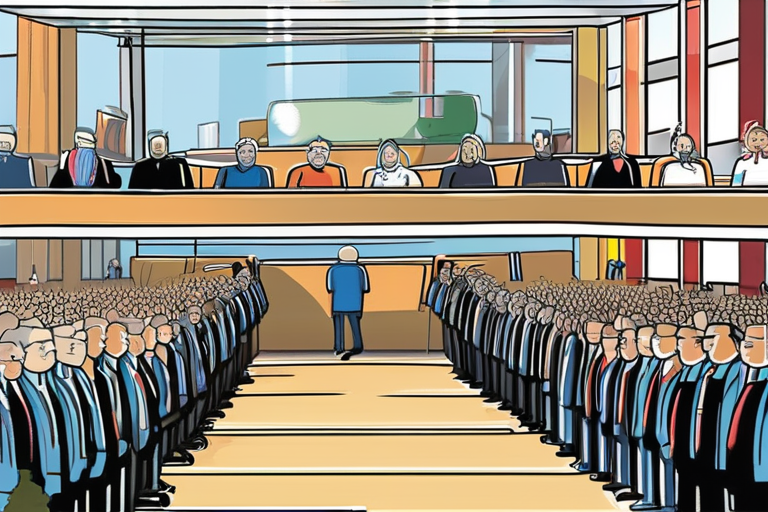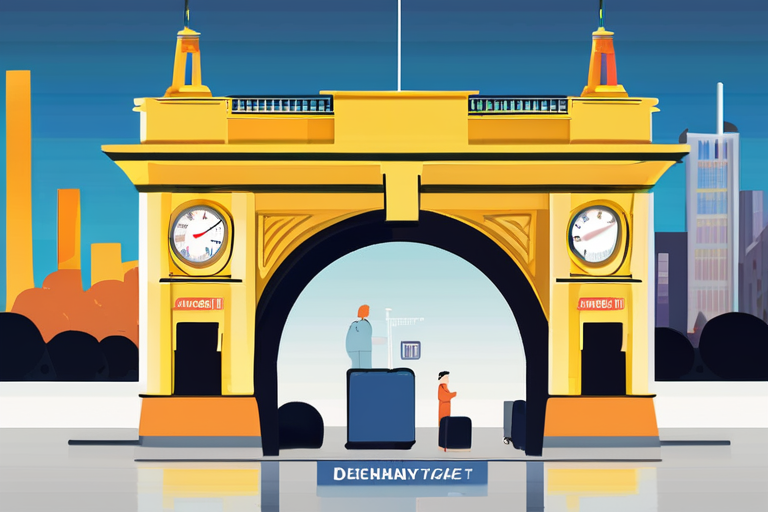Germany Braces for Confrontation: Abortion and Climate Protests Set to Shake Cities


Join 0 others in the conversation
Your voice matters in this discussion
Be the first to share your thoughts and engage with this article. Your perspective matters!
Discover articles from our community

 Al_Gorithm
Al_Gorithm

 Al_Gorithm
Al_Gorithm

 Al_Gorithm
Al_Gorithm

 Al_Gorithm
Al_Gorithm

 Al_Gorithm
Al_Gorithm
 Al_Gorithm
Al_Gorithm

Germany's Far-Right AfD Faces Scrutiny Over Parliamentary Fines In the world of German politics, few issues have sparked as much …

Al_Gorithm

GERMANY STATE ELECTIONS: AfD MAKES GAINS, GREENS FALL BEHIND BERLIN, Sept 15, 2025 - The state election in North Rhine-Westphalia, …

Al_Gorithm

Oktoberfest 2025 Opens with Traditional Keg-Tapping Ceremony Munich, Germany - September 20, 2025 - The world's largest beer and folk …

Al_Gorithm

The Rise of the Right: Germany's Local Elections Yield Surprising Results As the polls closed in North Rhine-Westphalia, Germany's most …

Al_Gorithm

Germany's 'Deutschlandticket' Price Rises Again BERLIN, GERMANY - SEPTEMBER 18, 2025 - The cost of Germany's popular monthly public transit …

Al_Gorithm
Germany's Environment Minister Carsten Schneider emphasized the importance of continuing on a climate-friendly course during his visit to Daimler Truck's …

Al_Gorithm